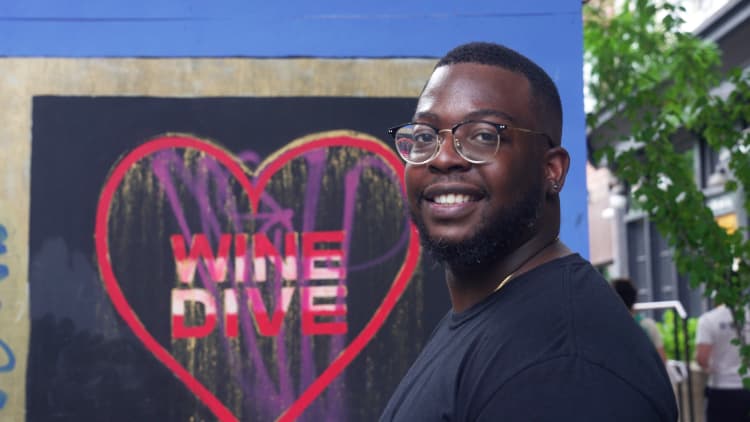
They say “love don’t cost a thing,” but Americans seem ready to spend cash to show their affection this Valentine’s Day.
Whether it’s on chocolate hearts or romantic dinners, Americans are planning to spend $25.9 billion on Valentine’s Day this year, according to an annual survey from the National Retail Federation. That number is up from $23.9 billion last year and marks the second-highest year for spending since NRF began tracking in 2004.
Just over half of respondents say they plan to celebrate Valentine’s Day, the survey found, and not all of them will spend money to do so. But if you are planning to show your affection with a gift or experience, “never go into debt for love,” financial expert Pattie Ehsaei tells CNBC Make It.
Better known as TikTok’s “Duchess of Decorum,” Ehsaei uses her more than 20 years of experience in legal and financial services to deliver advice on money, careers and social etiquette. Not going into debt for love is her “No. 1 financial rule for relationships.”
Here’s a look at how much consumers are planning to spend this Valentine’s Day, and what it will go toward.
Millennials plan to spend around $300 on Valentine’s Day
If money could buy love, millennials might have the most successful romantic relationships. Those ages 35 to 44 plan to spend an average of $336 to celebrate Valentine’s Day, the most of any adult age group surveyed.
They’re followed by consumers ages 25 to 34 who plan to spend an average of $238. Both groups are well above the $193 overall average among individuals who will spend money on Valentine’s Day.
A lot has changed over the years, but classics such as chocolate still appear to be in fashion, with candy and greeting cards leading the rankings for what consumers will purchase for the holiday.
Of those who say they’re spending money, here’s what they’ll be buying:
- Candy: 57%
- Greeting cards: 40%
- Flowers: 37%
- An evening out: 32%
- Jewelry: 21%
- Gift cards: 20%
- Clothing: 19%
Gifts your partner will love and your budget will appreciate
Some consumers may be buying more than just chocolate and flowers. Valentine’s Day was the most popular day to get engaged in 2020, according to wedding planning website Wedding Wire.
When it comes to shopping for an engagement ring, though, you’ll definitely want to plan ahead. The average engagement ring cost $6,000 in 2021, according to The Knot 2021 Jewelry and Engagement Study.
Couples planning to get engaged should have an honest conversation about finances before someone pops the question, Ehsaei says.
“This conversation is to ensure that both parties are on the same page around spending expectations and limitations, including the engagement, which eliminates awkwardness and guessing,” she says.
And if things are tight, Ehsaei encourages looking for cheaper alternatives.
“Don’t buy a natural diamond engagement ring,” she says, recommending lab-grown diamonds or moissanite as budget-friendly alternatives that will still impress your partner. “That money can be utilized for so many other things, like a down payment for a home, paying off debt or savings.”
There are cheaper alternatives for other gifts as well. Instead of sending fresh roses, try dried ones, Ehsaei says. “Dry roses cost less than half [the price of fresh roses] and last for months, sometimes years.”
If you’re making a dinner reservation, check out coupon sites such as Groupon for Valentine’s Day deals.
When you’re shopping for your significant other, “you don’t have to spend a lot of money to be romantic,” Ehsaei says. If you plan to exchange gifts with your partner, try deciding on a budget together, she suggests.
That way, “no one ‘overspends’ and [it takes] the anxiety out of how big a gift should be.”
Sign up now: Get smarter about your money and career with our weekly newsletter
Don’t miss: Here’s the No. 1 phrase used in successful relationships, say psychologists who studied 40,000 couples

